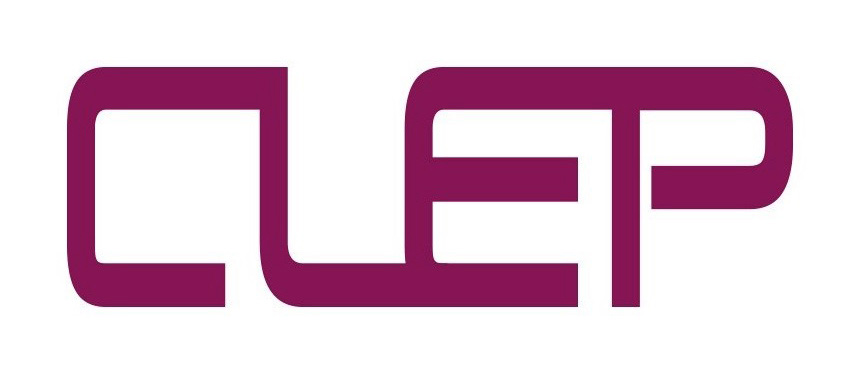Brexit Latest: EU Exit Business Readiness (4th September 2019)
Welcome to the latest in a series of business readiness bulletins, aimed at keeping trade associations, business representative bodies and business intermediaries up to date on the latest information and guidance for business on the UK exiting the EU.
This Bulletin aims to provide you with the latest information and guidance from Government, designed to rally businesses to get ready for Brexit.
EU Exit Business Readiness Forum
Our next forum will be on Thursday 12 September, further details have been sent to relevant organisations under a separate cover.
We would really like to hear from you if there is anything in particular that you would find useful for our upcoming forum, please share your thoughts with us via sed@beis.gov.uk.
EORI Number Update
Last week the Chancellor announced that as many traders as possible will be automatically allocated an Economic Operator Registration and Identification (EORI) number to enable them to trade smoothly once the UK leaves the EU on 31 October. Every business will need an EORI number to move goods into or out of the EU after Brexit. HMRC is sending letters to all possible VAT-registered businesses over the next two weeks to advise them of their assigned EORI number.
If your business is not VAT-registered, you still need to register for an EORI number. Getting an EORI number is an easy process that takes 5-10 minutes. Getting an EORI number is only the first step that businesses need to action urgently to be prepared for leaving the EU. After getting an EORI number, businesses need to decide how to make customs declarations. Traders can complete these themselves or employ a customs agent to do this.
Data Protection
If your members are a business or organisation and receive personal data from partners or suppliers in EU or EEA countries they must act now to ensure they can still do so legally after Brexit. Personal data is any information that can be used to identify someone, this could include a customer’s name, physical or IP addresses, or HR data such as staff working hours and payroll details. To continue receiving personal data legally after Brexit, review your supplier contracts and read this guidance: www.gov.uk/guidance/using-personal-data-after-brexit.
Get Ready for Brexit Campaign
The new public information campaign, ‘Get Ready for Brexit’, will run across television, social media, billboards and other platforms. Government research shows that only 50% of the population think it’s likely the UK will leave the EU on 31 October, 42% of small-to-medium sized businesses are unsure of how they can get ready and just 31% of the British public have looked for information on how to prepare for Brexit. The campaign will tackle this head on by setting out what all members of the public and business owners might need to do, if anything, to get ready to leave the EU on 31 October. The campaign will include events throughout the UK to help business preparations. More details to follow.
Recent Announcements
Importing and Exporting
The Department for Environment, Food & Rural Affairs have provided guidance on what your members would need to do to prepare their food and drink business for a no-deal Brexit. Update – added link to eggs marketing standards guide: Prepare your food and drink business for a no-deal Brexit.
HM Revenue & Customs have provided guidance on bringing goods into or taking goods out of the UK in baggage or a small motor vehicle, and if your members intend to use them for business, you must declare your goods and pay import duty and VAT before you move them across the border. Update – after Brexit, if your members import merchandise in baggage through any port or airport with a red channel or red phone point, they will now be able to declare their goods and pay duty using an online service, as long as the goods are: below £900; weighing less than 1,000kg; not licensed or controlled; not excise goods. The guidance has been updated to reflect this: Bringing merchandise from or to the UK in baggage or a small motor vehicle in a no-deal Brexit.
Animal and Plant Health Agency have provided guidance on what certificates you need to export live animals from the UK, and what you’ll need to do in a no-deal Brexit. Update – replaced information about endangered animals with links to pages with more comprehensive information on CITES and what to do if there’s a no-deal Brexit: Export live animals.
Workforce and People
Home Office have provided details on organisations funded to provide support to vulnerable and at risk EU citizens applying to the EU Settlement Scheme. Update – information for the East European Resource Centre and Royal Association for Deaf people updated: EU Settlement Scheme: community support for vulnerable citizens.
Department of Health and Social Care have provided guidance on what adult social care providers and local authorities need to do to prepare for a no-deal Brexit. Update – added contact information for local care associations: Actions for adult social care providers to prepare for Brexit.
Goods Vehicle Operators
Department for Transport have provided guidance on what UK goods vehicle operators need to do to carry out international road haulage if there’s a no-deal Brexit. Update – added information about buying ECMT permits from 30 August 2019 for journeys through EU and EEA countries to ECMT member countries in November and December 2019: Carry out international road haulage after Brexit.
Driver and Vehicle Standards Agency have provided details on the permits to travel to or through European Conference of Ministers of Transport (ECMT) member countries, and the rules your members will have to follow. Update – updated information about buying permits for journeys until 31 December 2019. They will be able to buy these permits from 30 August 2019 – they only need to buy them if you’ll be travelling to non-EU or EEA countries through the EU or EEA: ECMT international road haulage permits.
Regulations and Standards
HM Revenue & Customs have provided guidance on how VAT rules for UK businesses trading with EU countries would be affected if the UK leaves the EU without a deal. Update – detailed instructions on completing the European community sales list completion before Brexit has been added: VAT for businesses if there’s no Brexit deal.
Business Support
Triage Tool
GOV.UK has an online tool to help businesses prepare for the UK leaving the EU. Businesses can use the Triage Tool to find out:
- What their business may need to do to prepare for the UK leaving the EU
- What’s changing in their sector
- Information on specific rules and regulations
Businesses will need to answer 7 simple questions to get guidance relevant to their business.
Department for Business, Energy and Industrial Strategy – Sector Primers
These sector primers aim to bring together on one webpage the top 3 – 5 issues for each sector and provide guidance. The primers link through to more detailed material elsewhere on GOV.UK. Please could you pass on to your members and networks. The sectors covered are:
- Aerospace
- Automotive
- Chemicals
- Construction and Housing
- Consumer Goods
- Electricity incl. Renewables
- Electronics, Machinery & Parts
- Gas Markets
- Life Sciences Sector
- Mining and Non-metal Manufacturing
- Nuclear Sector
- Oil and Gas Production
- Parcel Delivery Services
- Professional & Business Services
- Research & Innovation
- Retail
- Space Sector
- Steel
Department for Environment, Food and Rural Affairs – Sector Primers
Department for Digital, Culture, Media and Sport (DCMS)
DCMS have issued new guidance on what to expect on day one of a ‘no deal’ scenario if you’re a creative business, small arts organisation or sports organisation that currently travels only to the EU, such as:
- touring professional choir
- touring chamber orchestra
- touring string quartet
- small touring ballet company
- small touring theatre company
- school football team
- amateur sports team
- pop or rock band
EU EXIT: Business Intelligence and Engagement Team
Department for Business, Energy and Industrial Strategy
Email: sed@beis.gov.uk


